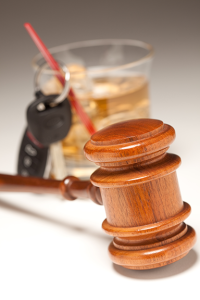DUI Laws for each State

We are frequently asked how DUI-DWI criminal cases proceed and how long before a case is closed. Unfortunately, there is no set answer. State law dictates the speed at which a prosecution must proceed. No two states are exactly alike and courts within that state determine when cases are scheduled. In some states, misdemeanor cases can last up to two years or longer. If your DUI-DWI case is considered a felony, this may further lengthen the time due to the complexities of the case and other extenuating circumstances.
Arraignment
After a person has been arrested for drunk driving, he or she will be given an arraignment date. The purpose of the arraignment is to be advised of the charges against you and to allow you to enter a plea of Guilty or Not Guilty. Before arraignment, the defendant already should have consulted with a criminal lawyer to discuss the case, and possible choices, and to obtain and idea of what sentencing could be if he or she loses the case. Plus, in some jurisdictions, critical defense motions should be filed on or prior to the date of arraignment. These motions, if filed, maybe the key to winning the case. One important motion that is typically filed is a comprehensive “discovery” motion, in which your attorney forces the state to turn over all evidence and witnesses’ names that will be used against you at trial.
Discovery
The next step after arraignment is the “discovery” phase of your case. During discovery, the attorney works to acquire all evidence in the case the state plans to use in the DUI-DWI case. Discovery evidence typically includes police reports, video (if there is a video), a list of witnesses, and any other physical evidence. Once a timely and targeted discovery motion is filed by your legal counsel, the state cannot divert from the list of what was disclosed.
Motions Hearing
A pre-trial Motions Hearing may be the next stage. After your attorney has received and reviewed the state’s evidence, the criminal defense attorney prepares and files all necessary motions. Motions can be different for each case and are based on the specific facts of your case and the evidence and witness list presented by the state. The DUI-DWI case is then placed on a Motions Hearing calendar where your criminal defense lawyer will argue the legal issues that are contained within the filed Motions.
Calendar Call
A Calendar Call is usually the next scheduled court date. At the Calendar Call, the judge will ask each attorney (the prosecutor and the respective criminal defense attorney) if the case is ready to proceed with trial. The judge may also ask if the defendant would like to change the previously entered plea (from the “not guilty” plea entered at arraignment) or if (for good cause) additional time is needed prepare for trial. If additional time is needed, the judge will determine if a reset or continuance will be granted or that your trial will go on. If the judge denies your attorney’s request for a delay, the judge will set the DUI-DWI case for a trial date. If a reset is requested and allowed, the case will typically be rescheduled for a new Calendar Call date.
Trial
After all the previous steps have been completed, trial is the next phase. The case is placed on a trial calendar that can last anywhere from one day to two weeks or longer, depending on the court case load. In some states, an accused DUI-DWI offender can only obtain a non-jury trial (judge-only decides). In others, the accused can opt for a non-jury trial or a jury trial. Additionally, in a few other states, a jury trial will be mandated once a case gets past the inferior court phase. The prosecution and attorney can continue to try to work out a plea and sometimes a plea offer may be presented by the prosecution up until trial starts. Occasionally, such an offer is made mid-trial. The defendant is not required to accept these plea offers and can choose to continue with trial. The defendant can also choose to change the previously entered plea. If neither a plea offer nor plea change occurs, the trial will go forward.
Trials can last a few hours or a few days depending on the case. The judge, if a bench (non-jury) trial, or the jury will be presented with all evidence from both the prosecution and criminal defense. Whoever decides the case is called the “trier of fact.” So, the judge or the jury decides guilt or innocence on all “counts” (charges). If the defendant is found guilty, the judge typically handles sentencing. But, in some states (Texas or Virginia), the jury imposes the sentence, if convicted. If the defendant is found not guilty, the charges will be dismissed or dismissed.
It is important to keep in mind that the above timeline is only an overview of the criminal court process. Not every DUI-DWI case will go through all the steps listed. If you have been arrested, the highly-skilled attorneys at TeamDUI.com are able to evaluate your case and provide legal advice based on the unique details that apply to your situation. Contact us today at 1-855-350-TEAM for expert DUI-DWI representation that will fight to protect your legal rights.
Related Articles
Contact Us
For a FREE Case Evaluation with a specialized DUI-DWI attorney, call or submit your case details.We are available 24 hours/7 days a week1-844-TEAM-DUI (1-844-832-6384)